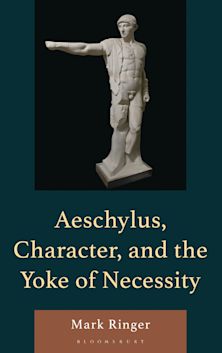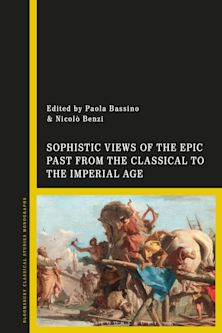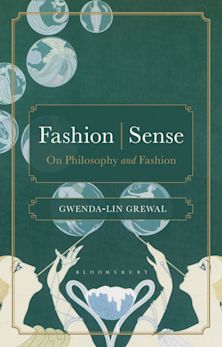- Home
- ACADEMIC
- Classical Studies
- Ancient Philosophy
- Ascent to the Beautiful
Ascent to the Beautiful
Plato the Teacher and the Pre-Republic Dialogues from Protagoras to Symposium
Ascent to the Beautiful
Plato the Teacher and the Pre-Republic Dialogues from Protagoras to Symposium
You must sign in to add this item to your wishlist. Please sign in or create an account
Description
With Ascent to the Beautiful, William H. F. Altman completes his five-volume reconstruction of the Reading Order of the Platonic dialogues. This book covers Plato’s elementary dialogues, grappling from the start with F. D. E. Schleiermacher, who created an enduring prejudice against the works Plato wrote for beginners. Recognized in antiquity as the place to begin, Alcibiades Major was banished from the canon but it was not alone: with the exception of Protagoras and Symposium, Schleiermacher rejected as inauthentic all seven of the dialogues this book places between them. In order to prove their authenticity, Altman illuminates their interconnections and shows how each prepares the student to move beyond self-interest to gallantry, and thus from the doctrinal intellectualism Aristotle found in Protagoras to the emergence of philosophy as intermediate between wisdom and ignorance in Symposium, en route to Diotima’s ascent to the transcendent Beautiful. Based on the hypothesis that it was his own eminently teachable dialogues that Plato taught—and bequeathed to posterity as his Academy’s eternal curriculum—Ascent to the Beautiful helps the reader to imagine the Academy as a school and to find in Plato the brilliant teacher who built on Homer, Thucydides, and Xenophon.
Table of Contents
Acknowledgements
Preface: Plato the Teacher and Reading Order
Introduction: Schleiermacher and Plato
1 Protagoras as Gateway
§1. Protagoras before Alcibiades
§2. Xenophon before Plato
§3. Taking the Measure of Protagoras
§4. Interpreting the Misinterpretation of Simonides
2 The Elementary Dialogues: the Alcibiades dyad and Lovers
§5. The ?? ???tte?? Fallacy
§6. The More Perfect Mirror
§7. Between Alcibiades and Lovers
3 Hippias Major: Between Protagoras and Symposium
§8. Reading Order and Authenticity
§9. Plato's pons asinorum
§10. Deceiving with the Double
4 The Musical Dialogues: Hippias Minor, Ion, and Menexenus
§11. Deception Defended?
§12. Inspired Interpretation?
§13. Rhetoric Rejected?
5 Symposium as t????
§14. Integrating Symposium
§15. History and Tragedy
§16. Alcestis, Codrus, and Achilles
§17. Catching Sight of the Sea
Epilogue: Imagining Plato's Academy
Bibliography
Index
Index locorum
Index verborum
Abo
Product details
| Published | Oct 21 2020 |
|---|---|
| Format | Ebook (PDF) |
| Edition | 1st |
| Extent | 618 |
| ISBN | 9781978789739 |
| Imprint | Lexington Books |
| Publisher | Bloomsbury Publishing |
About the contributors
Reviews
-
“Altman’s latest book is creative and ambitious in his ongoing exploration of the pedagogy of Plato’s dialogues. His impressive work is scholarly, detailed, and offers fresh perspectives on how Plato can educate his readers. Altman’s alternative reading to the developmentalist approach is indispensable as a part of the emerging conversation on reading the dialogues as a corpus.”
Marina McCoy, Boston College
-
As a true outgrowth of Plato’s thought, Altman’s book is offered to us as the ideal occasion to undertake an ascent to the beauty of the Platonic corpus, represented here by minor dialogues that connect the risky Protagoras to the beautiful Symposium. With this volume, Altman concludes the set of five books dedicated to Plato’s dialogues, although, in a delightful paradox full of teachings, this is just the beginning of a longer way. The reader who starts with Plato will hardly find a better guide than this beginning, which experts will find enlightening as well.
Alfonso Flórez, Pontificia Universidad Javeriana
-
‘The single most important thing a Plato scholar needs is a good sense of humor.’ I don’t know about you but a book featuring such an opening sentence is a book that I would definitely want for my personal library. The more so since William Altman has produced, in an intellectually provocative and emotionally engaging manner, a fascinating image of Plato the inspiring teacher of the Academy.
Nikos G. Charalabopoulos, author of the Platonic Drama and its Ancient Reception
-
With Ascent to the Beautiful, Altman adds the final entry to his five-volume series Plato the Teacher, an ambitious re-reading of Plato’s work. As the title suggests, Altman interprets Plato—the founder of the Academy—as primarily a teacher, and his written works (the dialogues) as teaching texts. In this series, Altman endeavors to reconstruct the “Eternal Curriculum” of the Academy, a highly sophisticated and intentional educational program he finds in Plato’s surviving written work.
Bryn Mawr Classical Review
-
The appearance of The Ascent to the Beautiful should orient significant scholarly attention to Altman’s earlier books and help to uncover their Platonic light.
The Review of Politics

ONLINE RESOURCES
Bloomsbury Collections
This book is available on Bloomsbury Collections where your library has access.



































